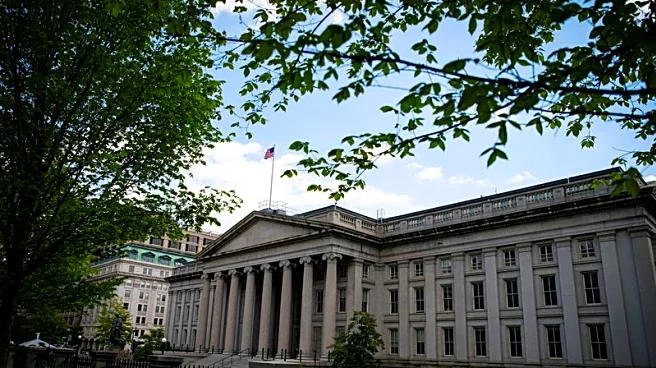What's Happening?
Lori Knipel, a former Brooklyn Democratic Party leader, has reportedly spent over $14,000 from her political committee funds on personal expenses such as dinners, hotel stays, and a theater ticket membership. This spending occurred despite her retirement
from the 44th Assembly District position in September 2024. Disclosure filings indicate that Knipel continued to use these funds for various personal expenses, including meals at restaurants, cellphone and internet bills, and Amazon purchases. A significant portion of these expenses, amounting to $7,069, was labeled as 'miscellaneous.' The spending practices have raised questions about potential violations of state election laws, which require leftover campaign funds to be legally dispersed through charitable or political donations, transfers to other committees, refunds to contributors, or contributions to the New York State General Fund.
Why It's Important?
The situation highlights potential issues of accountability and transparency in the use of campaign funds by political figures. If Knipel's spending is found to violate state election laws, it could lead to legal repercussions and impact public trust in political leaders. The case underscores the importance of strict adherence to campaign finance regulations to prevent misuse of funds intended for political activities. It also raises broader questions about the oversight mechanisms in place to monitor the financial activities of political committees, especially after officials leave office. The outcome of this case could influence future policy discussions on campaign finance reform and the enforcement of existing laws.
What's Next?
The ongoing scrutiny of Knipel's spending may prompt further investigation by state election authorities to determine if any laws were violated. If violations are confirmed, it could lead to legal action against Knipel and potentially result in changes to how campaign funds are managed post-retirement. Political leaders and election law experts may call for stricter regulations and oversight to prevent similar incidents in the future. The case may also influence public opinion and voter expectations regarding financial transparency and accountability among elected officials.

















